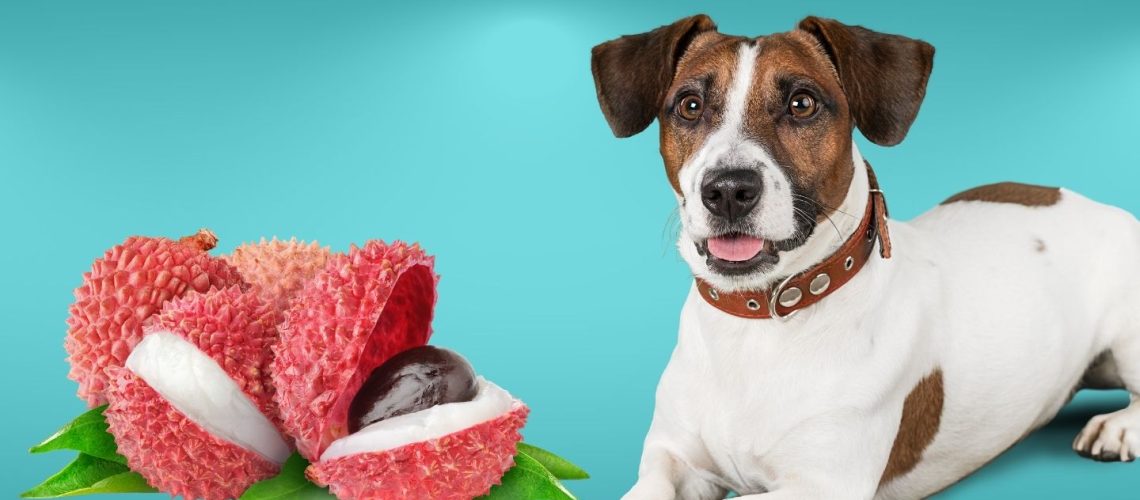Can dogs eat lychee? This is a common question for pet owners who want to share the delicious tropical fruit with their furry friends. The short answer is no, dogs should not eat lychee. In this article, we will explore the reasons why dogs should not eat lychee, the dangers of hypoglycin A, and the symptoms of hypoglycemia in dogs. We will also discuss alternative safe fruits for dogs and how to prevent accidental ingestion of lychee.
Why is lychee dangerous for dogs?
Lychee contains a toxic compound called hypoglycin A, which can cause hypoglycemia in dogs. Additionally, there are risks associated with choking and intestinal blockage, as well as the possibility of allergic reactions to lychee.
Hypoglycin A and its effects on dogs
Hypoglycin A is a toxic compound found in lychee fruit. It is a type of amino acid that can cause a condition called hypoglycemia, which is a dangerous drop in blood sugar levels. Hypoglycemia can lead to seizures, coma, and even death if left untreated.
The risk of choking and intestinal blockage
The outer coat and seeds of lychee can pose a choking hazard or cause intestinal blockages in dogs. This is especially dangerous for small dogs, which may be unable to pass the foreign object, leading to an emergency situation.
Allergic reactions to lychee
While rare, some dogs may have an allergic reaction to lychee fruit. This could result in symptoms such as itching, swelling, or trouble breathing. If you suspect your dog is experiencing an allergic reaction, contact your veterinarian immediately.
Recognizing and treating hypoglycemia in dogs
Knowing the signs of hypoglycemia in dogs is crucial so that you can act quickly if your dog has ingested lychee.
Early signs of hypoglycemia
The symptoms of hypoglycemia in dogs can vary, but some common symptoms include weakness, lethargy, tremors, seizures, and vomiting.
When to seek veterinary care
If your dog has ingested lychee or is showing any hypoglycemia symptoms, it is important to seek veterinary care as soon as possible.
Treatment options for hypoglycemia
Treatment for hypoglycemia in dogs may include intravenous fluids, glucose injections, and medications to stabilize blood sugar levels. Your veterinarian will determine the best course of action for your pet based on their specific needs.
Safe fruits for dogs
Although lychee is not safe for dogs, there are many other fruits that can provide valuable nutrients and are safe for consumption. Some safe fruits for dogs include:
Apples
Bananas
Blueberries
Watermelon
Note: Always remove seeds and cores before feeding fruits to your dog.
Tips for feeding fruits to dogs
Start by feeding your dog small amounts of fruit to ensure they do not experience any adverse reactions. Monitor for any digestive changes or signs of discomfort after introducing new fruits.
Preventing accidental ingestion of lychee
To protect your dog from accidental ingestion of lychee:
Storing lychee safely
Store lychee and other potentially toxic foods out of reach of your dog, in sealed containers or locked cabinets.
Educating family members and guests
Inform family members and guests about the dangers of feeding lychee to your dog and ask them not to share this fruit with your pet.
Monitoring your dog during outdoor activities
Keep an eye on your dog while outdoors to prevent them from scavenging and potentially eating harmful substances, including lychee.
Frequently asked questions
Can dogs eat canned lychee?
No, dogs should not eat canned lychee, as it still contains the toxic compound hypoglycin A.
Can dogs eat lychee jelly or candy?
Dogs should not eat lychee jelly or candy, as these products may contain lychee and other harmful ingredients, such as excessive sugar or artificial sweeteners.
What should I do if my dog has eaten lychee?
If your dog has eaten lychee, contact your veterinarian immediately for guidance on how to proceed.
Conclusion
In conclusion, it is important for dog owners to be aware of the potential dangers of feeding lychee to their pets. By understanding the risks associated with lychee and hypoglycin A, pet owners can make informed decisions about their dog's diet and ensure their safety. Instead, opt for safe fruits that provide dogs with valuable nutrients, and always be vigilant in preventing accidental ingestion of harmful substances.











